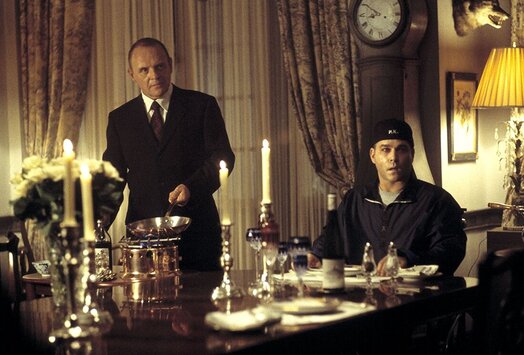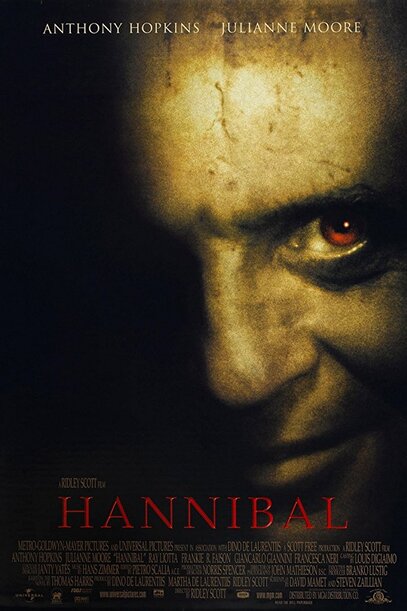Written by John Edward Betancourt  Betrayal is perhaps one of the hardest things a human being will ever have to deal with. Simply because of the fact that when and if it happens it is devastating on every level. When a friend or loved one betrays us, it rocks us at our very core, leaving us feeling as though we can trust no one. It takes a long time to heal from such actions, but it can be done. But perhaps the toughest betrayal to deal with is when we work toward something in life, something we truly believe in, only to have it fall to pieces because someone that we work with has turned their backs upon us, or that which we worked so hard to obtain, turned out to be nothing more than a waste of time. It is that concept, of watching a dream fall to pieces that is at the core of the 2001 film, Hannibal. When a drug bust goes horribly wrong, FBI Agent Clarice Starling finds her once promising career in jeopardy when she becomes the scapegoat for this botched operation. With her reputation in tatters, Clarice takes it upon herself to salvage what’s left of her standing by working toward bringing in the man who helped put her on the map, Hannibal ‘The Cannibal’ Lecter. Still at large after his escape, Hannibal has been laying low and living abroad. But with Clarice now on the hunt for him, old enemies are making a push to find him first and everyone’s efforts to locate the living legend will indeed bring Hannibal out of hiding, and back to the United States and back... to Clarice Starling.  What first struck me when watching this film is how vastly different it is in its feel and look from any other Hannibal Lecter film out there. There is a haunted beauty to this motion picture visually, almost a majestic feel to it and at first that's a little off putting because hey, this is a horror film about a doctor turned cannibal. Yet, it works, because the majestic feel is part of the trick from Director Ridley Scott as he mixes the beauty of the world with the vast brutality of Hannibal and his enemies. It actually makes for a jarring experience as the film progresses, but while Hannibal benefits from this masterful stroke of genius, this is a film that would be nothing without its star. Obviously when it comes to Anthony Hopkins reprising his role as Hannibal Lecter, we are treated to nothing less than a fantastic performance. We finally see what the monster is like out of the cage and in many ways, the character is likeable. The slithering snake moving about in the darkness of a cell is gone, instead replaced by a refined and classy man who will murder you at the drop of a hat. He is nicely balanced by the raw evil of Mason Verger, played by an unrecognizable Gary Oldman. Their interaction is absolutely sublime but there is simply not enough of it and that's where some of the flaws in this film arise. With its central theme of betrayal and staying true to oneself and ideals, the film does jump around quite a bit and while Clarice's fall from grace and infallibility are fascinating, she feels like an unnecessary character here. It's no fault of Julianne Moore, who takes over the role from Jodie Foster, it's simply the fact that Clarice is just... there when it comes to the story. Hannibal and his attempt to betray who and what he is, is a far more fascinating journey to go on as we watch him go from refined gentleman back to the vicious murderer we’ve come to expect by the end of the movie and let’s be honest, the ending dinner scene is one of the coolest, grossest and most bone chilling scenes of recent years. More of that, and more of Hannibal's journey would have undoubtedly made this film as popular as its predecessor. But it is by no means an awful motion picture. Hannibal is actually quite an enjoyable ride, a slow burning horror film that builds up to its end nicely, it just feels lost at times and that's unfortunate because there is a lot to like here. If you haven't seen it, do so, if anything for that incredible ending.
0 Comments
Leave a Reply. |
Archives
April 2025
|
|
© 2012-2025, Nerds That Geek LLC.
All Rights Reserved. |
uWeb Hosting by FatCow

 RSS Feed
RSS Feed
